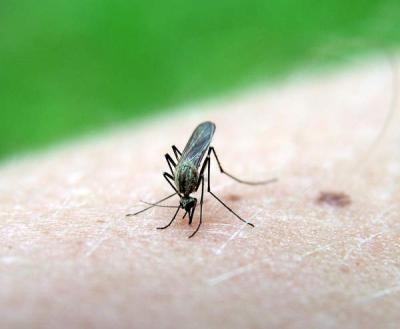Tri-town free of EEE virus so far in ‘15
In the past few years, the threat of mosquito-borne eastern equine encephalitis has prompted aerial spraying, curfews and rescheduled sports games.
So far this year, it hasn’t shown up on the scene.
Experts say there is still time for the virus to appear, but suggest that a dry summer may have kept it at bay.
“It’s been incredibly quiet so far,” said Karen Walega, the Marion-Rochester Health District agent. “That is a very good thing from a public health point of view.”
Usually, the eastern equine encephalitis virus (EEE) is detected within infected mosquitoes in June or July. Last year, state officials reported that EEE was discovered in mosquitoes captured in Rochester and Marion during August.
Walega said with little rain this spring and summer, it’s likely the breeding habitats for the insects were reduced, keeping their numbers low.
No confirmed reports of EEE in the mosquito population doesn’t mean the virus isn’t out there.
Plymouth County Mosquito Control Project Superintendent Anthony Texeira said residents should be wary.
“I have to assume [EEE] is out there,” Texeira said. “I would say everybody has to be cautious. Based on past years we should eventually find it. I’m not sure where or when.”
He said Plymouth County Mosquito Control typically receives between 15,000 to 20,000 requests to spray annually.
The last day to request spraying for a property is Friday, Sept. 11. The project will continue spraying until all requests are met.
While EEE has not yet been found, 106 mosquitoes tested positive for West Nile Virus and one person was infected with the disease in Middlesex County.
On Aug. 25, a mosquito captured in Lakeville tested positive for West Nile.
Of the two illnesses, EEE is more rare, but has a mortality rate of approximately 30 percent.
State assigned risk levels for EEE remain low for in Marion, Mattapoisett and Rochester.
According to data from the Massachusetts Department of Health, EEE cases have dropped since 2012 when seven people contracted the disease, resulting in three deaths.
Because the virus was so widespread that year, Old Rochester Regional fall sports games were held hours earlier to comply with a EEE curfew meant to limit player’s exposure. In 2013, one person fell ill and died due to EEE. Last year, no human cases of EEE were detected.
To stay safe, Walega said residents should drain standing water on their property to limit where mosquitoes breed.
Other precautions include wearing long sleeve shirts and using insect repellent with DEET when outside between dusk and dawn, when mosquito activity peaks. Also, repair holes in screen windows to keep mosquitoes outside. For more information about EEE, reports of current virus activity and safety tips, visit www.mass.gov/dph/wnv.















